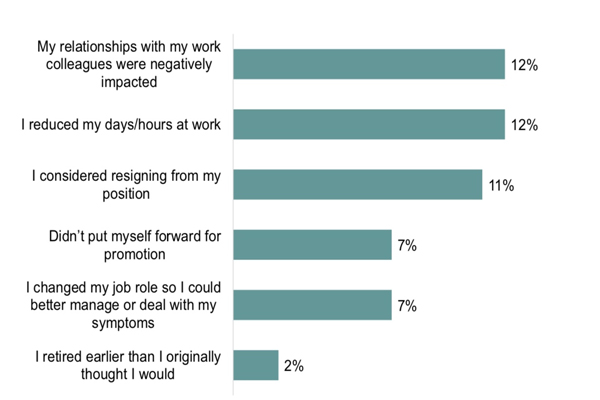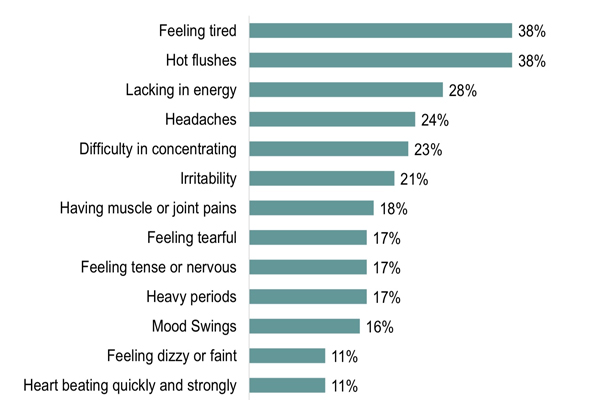Staff want employers to “up their game” and offer better support to women going through the menopause, according to the latest Ipsos MORI poll. The survey, carried out for World Menopause Day (18th October), reveals that 60% of women experiencing menopausal symptoms want their employers to provide more support.
The survey found that almost half of all working women experiencing three or more menopausal symptoms have suffered at least one detrimental impact on their working lives. Two thirds have lost interest in their work (68%) or made mistakes (65%). Many also admit that menopausal symptoms have negatively impacted relationships with colleagues. As a result, some have resorted to reducing their working hours, while others have consider resigning. These findings back recent research carried out by Women in Hospitality, Travel & Leisure (WiHTL). Its research reveals that 30% of women have considered leaving their job, and over 25% have avoided a promotion or taken a demotion due to menopausal symptoms.

THE SYMPTOMS
According to the Ipsos poll, 47% of working women (aged 40-65) experience three or more menopause symptoms while they are working. This includes feeling tired (38%), hot flushes (38%), headaches (24%), difficulty concentrating (23%), feeling tearful (17%), heavy periods (17%) and feeling dizzy or faint (11%).
Yet, most employers currently offer little support to working women going through the menopause. The poll revealed that only around 1 in every 20 women are aware of their employer offering proactive policies or support to women around the menopause age. In fact, just 7% employers offer a support group and 6% have a menopause policy. Another 6% offer specialist menopause advice from a third party, and a further 6% said their employer provided line manager or other training around menopause awareness.

Source: Ipsos MORI
SUPPORTIVE MEASURES
According to the poll, 60% women want companies to offer more support. More than half (55%) said they would feel more positively about a company that had a menopause awareness programme. Over a third (37%) staff would like their employers to offer access to specialist menopause advice from a third-party expert. An additional 31% want their employer to offer a menopause policy.
The Ipsos poll points out that both women and men need to be better equipped to support colleagues around the menopause. It found that nearly half (48%) of women experiencing symptoms have not spoken to anyone at work about their experiences. Those that do are more likely to turn to female colleagues (45%) for support than male (1%).
That said, just 40% of women and 27% of men (aged 40-65) feel equipped to support a colleague experiencing menopause symptoms. Interestingly, only 44% of women said they would attend menopause awareness training offered by their employer, the poll noted. Only a third of men said they would do the same. This demonstrates the need for more awareness around the topic to highlight the importance of these programmes. That’s why WiHTL is organising a webinar on the often taboo workplace topic of menopause. Click here for more information.




































